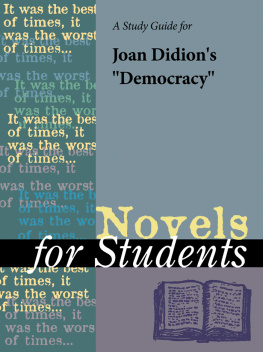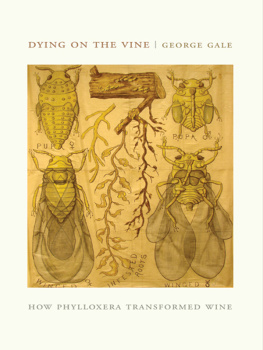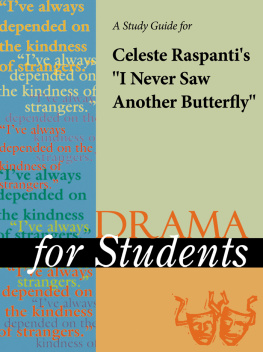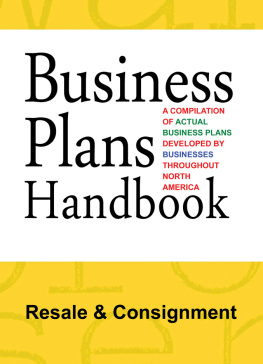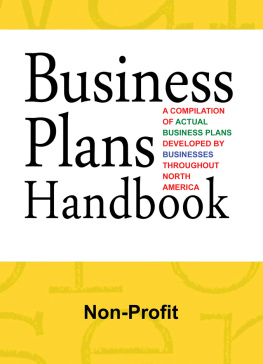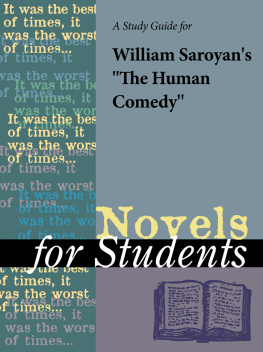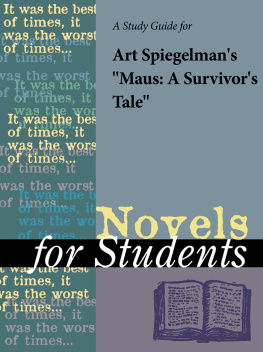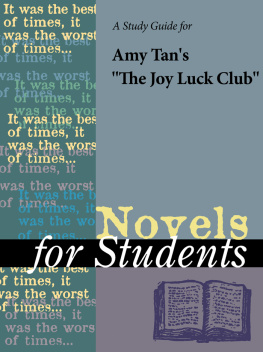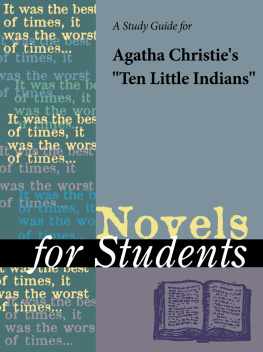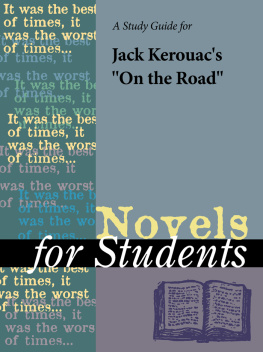TABLE OF CONTENTS
Guide
Novels for Students, Volume 3
Copyright Notice
Since this page cannot legibly accommodate all copyright notices, the acknowledgments constitute an extension of the copyright notice.
While every effort has been made to secure permission to reprint material and to ensure the reliability of the information presented in this publication, Gale Research neither guarantees the accuracy of the data contained herein nor assumes any responsibility for errors, omissions, or discrepancies. Gale accepts no payment for listing; and inclusion in the publication of any organization, agency, institution, publication, service, or individual does not imply endorsement of the editors or publisher. Errors brought to the attention of the publisher and verified to the satisfaction of the publisher will be corrected in future editions.
This publication is a creative work fully protected by all applicable copyright laws, as well as by misappropriation, trade secret, unfair competition, and other applicable laws. The authors and editors of this work have added value to the underlying factual material herein through one or more of the following: unique and original selection, coordination, expression, arrangement, and classification of the information. All rights to this publication will be vigorously defended.
Copyright 1998
Gale Research
835 Penobscot Building
645 Griswold St.
Detroit, MI 48226-4094
All rights reserved including the right of reproduction in whole or in part in any form.
This book is printed on acid-free paper that meets the minimum requirements of American National Standard for Information SciencesPermanence Paper for Printed Library Materials, ANSI Z39.48-1984.
ISBN 0-7876-2113-7
ISSN 1094-3552
Printed in the United States of America.
10 9 8 7 6 5 4
Democracy
Joan Didion
1984
Introduction
Democracy, Joan Didion's fourth novel, published in 1984, takes a sardonic look at the relationship between politics and personal life. The tension between the public and private persona of the novel's main character, Inez Victor, is examined in the context of a life led in the glare of mass media. As the wife of an ambitious congressman, senator, and aspirant to the Presidency, Inez has been groomed in playing to the public. She is not at all comfortable in this role.
The novel is at its most biting when Inez and Billy Dillon, her husband's political adviser and public relations operator, are goading one another. Although she appreciates Dillon's ironic abrasiveness rather more than her husband's woolly political jargon, Inez resents, for example, interviewers deciding in advance the angle of their profile on the basis of library cuttings. It is as if she has lost all personal claim to her past. Her own memory, and hence her history, have been fictionalized. The main events of the novel occur in 1975, the year of the United States's withdrawal from Vietnam. It is therefore impossible to read the story of Inez's marriage, and her affair with the elusive Jack Lovett, as pure personal drama.
Democracy, as the title implies, is also the story of the way in which a nation has lost touch with its own past and with the principles that once guided it. Many of those who commented on the novel when it was first publication greeted it as Didion's best novel to date. It was seen as a book that combined the barbed observational precision of her journalism with the broader scope of the novelist. Others were put off by the tentative nature of its composition, and in particular by the intrusive voice of the narrator, who regularly informs the reader of directions previous versions of the book might have taken.
Author Biography
Joan Didion was born in Sacramento, California, on December 5, 1934, into a family that had put down roots in the region during the mid-nineteenth century. Her great-great-great-grand-mother, Nancy Hardin Cornwall, had travelled part of the way west with the members of the ill-fated Donner-Reed wagon train, most of whom died while trapped in the Rocky Mountains during the winter of 1846-47. Sensibly, as it proved, Didion's ancestor parted company with the main group and took the northern trail through Oregon. Critics often refer to this ancestral heritage, arguing that Didion has the frontier in her blood and the confidence to take her own course. Both thematically and stylistically, these are observations which are relevant to a study of the novel Democracy.
Didion's childhood became nomadic during World War II. Her father was moved from one Air Corps base to another, and the family had spells in Washington, North Carolina, and Colorado. By the time they were re-settled in Sacramento, Didion was already developing a serious interest in writing. As a young teenager she spent hours typing out entire chapters from the novels of Ernest Hemingway, Henry James, and Joseph Conrad. She enrolled at the University of California in February, 1953, and it was there, at Berkeley, that she had the first of her own works publisheda short story entitled "Sunset," which appeared in the student magazine Occident.
In her senior year Didion won Vogue magazine's Prix de Paris Award, and, after her graduation in 1956, she went to work in the magazine's New York office. She was quickly made an associate editor. In addition to her work for Vogue, she contributed articles to National Review and Mademoiselle. In 1958 she met John Gregory Dunne, a graduate of Princeton and staff writer at Time. They married in January, 1964. Didion's first novel, Run River, had been published (and hardly noticed) the previous year. The newly-married couple both resigned from their magazine positions and moved to California.
Working as freelancers, they earned only seven thousand dollars between them in their first year. However, Didion's reputation as a columnist with an individual voice grew steadily, and her essay collection, Slouching Towards Bethlehem, published in 1968, brought her fully into the public eye. Her second novel, Play It As It Lays, became a bestseller two years later. Didion spent much of the seventies collaborating with her husband on screenplays, including a version of her second novel and the much-more successful A Star is Born. This was a lucrative decade, but not a satisfying one for Didion, who preferred working on her own as a novelist.
The novel which Didion published in 1977, A Book of Common Prayer, concerned a detached narrator trying, and failing, to find some coherence in the life of the book's protagonist. Didion's second essay collection, The White Album, reflected a mood of personal and clinical depression. Democracy, Didion's fourth novel, did not appear until 1984. The difficulties and false starts encountered in its composition form an essential part of the book's texture.
Both Didion's fiction and nonfiction are characterized by self-consciously stylish prose and attention to circumstantial detail.
Plot Summary
Part I
Joan Didion's Democracy chronicles a woman's search for identity during America's turbulent 1960s and 1970s. It is a quest that is completed in 1975, soon after the final evacuation of American troops from Vietnam and Cambodia. Didion, who identifies herself as the narrator of the story, compiles fragments of Inez Christian's life in an effort to help order Inez's experiences, and thus provide meaning to her life.

